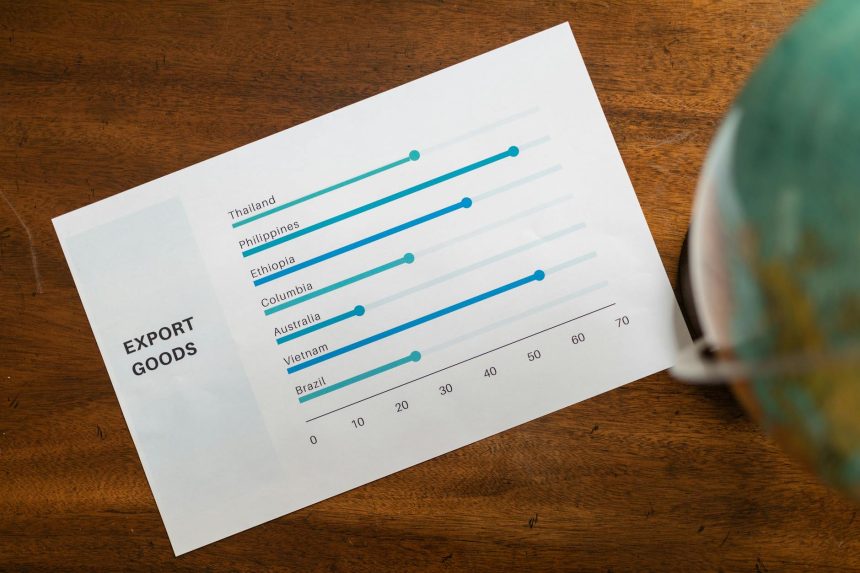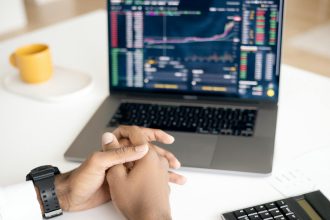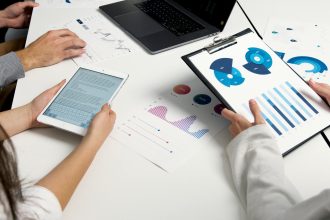ai-in-global-trade
AI in Global Trade: 7 Ways AI Reshapes Commerce & Finance
The landscape of international commerce is undergoing a profound transformation, driven by an invisible yet powerful force: Artificial Intelligence. Businesses worldwide are grappling with complex supply chains, volatile markets, and intricate regulatory frameworks. How can organizations not only navigate these challenges but also thrive in an increasingly interconnected global economy? The answer lies in the strategic integration of AI in global trade, offering unprecedented opportunities for efficiency, foresight, and competitive advantage.
The Transformative Power of AI in Global Trade
Artificial Intelligence is no longer a futuristic concept; it is an active participant in today’s global marketplace. From predicting market shifts to automating complex processes, AI is fundamentally redefining how goods, services, and capital move across borders. This technological wave promises to unlock new levels of operational excellence and strategic insight, making trade more agile and responsive than ever before.
Redefining Supply Chain Resilience with AI
Modern supply chains are notoriously complex, vulnerable to disruptions ranging from geopolitical events to natural disasters. However, AI-driven solutions are ushering in a new era of resilience and predictive capability. By analyzing vast datasets—including weather patterns, shipping routes, demand forecasts, and real-time sensor data—AI algorithms can anticipate potential bottlenecks, optimize inventory levels, and suggest alternative logistics pathways. This proactive approach minimizes delays and significantly enhances operational continuity.
Consider the benefits:
- Predictive Demand Forecasting: AI models learn from historical data and external factors to forecast demand with greater accuracy, reducing overstocking or stockouts.
- Optimized Logistics: Algorithms identify the most efficient routes, modes of transport, and warehousing strategies, cutting costs and delivery times.
- Risk Management: AI continuously monitors global events, flagging potential disruptions and suggesting mitigation strategies before they escalate.
- Enhanced Visibility: Real-time tracking and data analysis provide end-to-end visibility across the entire supply chain, from raw materials to final delivery.
Revolutionizing International Trade Finance and Payments
The financial backbone of global trade, involving billions in transactions daily, has historically been encumbered by manual processes, high costs, and security risks. AI is now streamlining these critical functions, making cross-border payments faster, more secure, and more transparent. Machine learning algorithms are adept at fraud detection, instantly flagging suspicious activities that human analysts might miss. Furthermore, AI automates compliance checks, significantly reducing the administrative burden and speeding up transaction approvals.
Here’s how AI is making a difference:
- Automated Document Processing: AI can rapidly process and verify trade documents like bills of lading, letters of credit, and customs declarations, accelerating approvals.
- Fraud Detection: Sophisticated algorithms analyze transaction patterns to identify and prevent fraudulent activities in real-time, enhancing security.
- Credit Risk Assessment: AI leverages extensive data to provide more accurate and dynamic credit risk assessments for trading partners, facilitating better lending decisions.
- Optimized Foreign Exchange: Predictive AI models can forecast currency fluctuations, helping businesses make informed decisions on hedging and payment timing.
Key Applications of Artificial Intelligence in International Commerce
Beyond supply chains and finance, the impact of AI in global trade extends to various operational facets, driving efficiency and strategic advantage.
Enhancing Logistics and Customs Operations
The movement of goods across borders is often bogged down by complex customs procedures and intricate logistics. AI is transforming these areas by automating data entry, classifying goods, and ensuring compliance with diverse international regulations. This not only speeds up customs clearance but also reduces the likelihood of human error, which can lead to costly delays and penalties. Smart ports and warehouses, powered by AI, are becoming increasingly common, optimizing cargo handling and storage.
For more insights into how technology is reshaping global logistics, you can explore resources from the World Economic Forum.
Mitigating Risks with Predictive Analytics
Global trade is inherently risky, involving political instability, economic fluctuations, and natural disasters. AI-powered predictive analytics helps businesses anticipate and mitigate these risks. By analyzing vast datasets, including geopolitical news, economic indicators, and weather forecasts, AI can provide early warnings and suggest proactive strategies, allowing companies to adapt quickly and protect their investments. This capability shifts risk management from reactive to proactive.
Streamlining Documentation and Compliance
International trade involves a mountain of paperwork and a labyrinth of compliance requirements. AI, particularly through Natural Language Processing (NLP), can read, interpret, and generate complex trade documents with remarkable accuracy. This automation reduces manual effort, accelerates processing times, and ensures adherence to regulations across different jurisdictions, minimizing legal and financial exposure. The sheer volume of data involved in global trade makes AI an indispensable tool for maintaining compliance.
Understanding global trade rules is crucial; the World Trade Organization (WTO) offers comprehensive information on international trade topics.
The Future Landscape: Challenges and Opportunities
While the benefits of AI in global trade are immense, its adoption also presents challenges. Data privacy concerns, the need for skilled talent, and the ethical implications of AI deployment require careful consideration. However, the opportunities for growth, innovation, and greater global connectivity far outweigh these hurdles.
Navigating Ethical Considerations
As AI becomes more integrated into trade decisions, questions around data privacy, algorithmic bias, and accountability become paramount. Businesses must establish robust ethical guidelines and ensure transparency in their AI applications to build trust and maintain fair practices across the global ecosystem.
Preparing for a Smarter Trade Ecosystem
The future of global trade is undeniably intelligent. Companies that invest in AI capabilities, foster a data-driven culture, and prioritize continuous learning will be best positioned to lead this transformation. Embracing AI is not just about technological upgrade; it’s about fundamentally rethinking strategies for efficiency, resilience, and competitive advantage in a dynamically evolving world.
In conclusion, Artificial Intelligence is not merely an enhancement but a fundamental reinvention of global trade. From fortifying supply chains and modernizing finance to streamlining complex logistics and mitigating risks, AI in global trade is creating a smarter, more efficient, and more resilient international marketplace. Businesses that embrace these innovations will undoubtedly emerge as leaders in the next era of commerce.
Are you ready to harness the power of AI to transform your global trade operations? Explore how intelligent solutions can drive your business forward today.
Discover how Artificial Intelligence is revolutionizing global trade dynamics, from supply chain optimization and international trade finance to enhanced logistics and risk management. This article explores key applications and future trends of AI in international commerce.
AI in Global Trade, global supply chain, international trade finance, AI logistics, digital trade transformation
Featured image provided by Pexels — photo by RDNE Stock project








